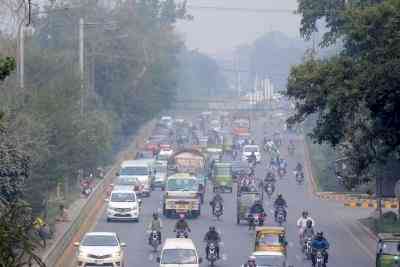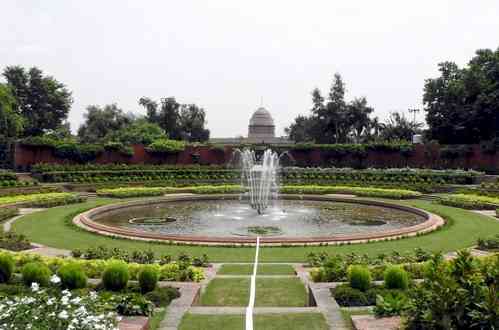PUNJAB GOVERNMENT ISSUES ADVISORY REGARDING USE OF AIR-CONDITIONING IN RESIDENTIAL/COMMERCIAL AND HOSPITAL
ADVISORY ISSUED IN THE WAKE OF COVID-19 PANDEMICS

Chandigarh: The Punjab Government today issued advisory regarding the use of Air-conditioning in Residential/Commercial & Hospital in the wake of COVID-19 pandemics.
Giving details here today, an official spokesperson of the Punjab Government said that with the onset of summer season in the past few weeks, concerns with regard to the safety and usage of Air conditioners/coolers etc. in the wake of COVID-19 pandemics have been raised. The Air-conditioning systems generally work on the principle of re-circulating the air inside the room and in the current COVID-19 situation, there are apprehensions that the air conditioning poses a threat to other people especially in large facilities such as malls, offices, hospitals, health centres etc. The State has therefore decided to come up with an advisory to allay all such apprehensions and concerns with regard to safety and usage of Air conditioning/coolers etc. in different settings.
Divulging about the guidelines for usage of air conditioning in various settings, he said that in resident application recirculation of cool air by Room Air Conditioners must be accompanied by outdoor air intake through slightly open windows and exhaust by natural ex-filtration. The room temperature should be set between 24-27 degrees Celsius and the relative humidity should be maintained between 40% - 70%. The Air conditioners should be serviced often so as to keep the filters clean. Exhaust fans can be installed in the rooms containing a large number of people so as to create a negative pressure in the room and ensure the entry of fresh air in the premises. The circulated air inside the room should be vented out frequently.
Talking about the evaporative/ desert air cooler he said that tt is advisable to prevent dust entry and maintain hygiene. Evaporative cooler tanks must be cleaned and disinfected and the water drained and refilled frequently. He said that the evaporative air coolers must be cleaned and disinfected at regular intervals. The water tank should be emptied and then wiped gently with a soft cloth, sponge and warm water to eliminate moldy residue that may have built up since the previous cleaning. The tank can also be washed with mild soapy water and then flushed out with clean water. He said that for the cooling pads and air vents, a mixture of 50-50 water and vinegar should be used to soak and rinse the pads and the vents. Evaporative coolers must draw air from outside to ensure good ventilation.
The spokesperson further said that fans should be operated with windows kept partly open. If an exhaust fan is located at a nearby location then it must be kept running to exhaust air for better ventilation.
Revealing about commercial and industrial facilities, he said that the best action to limit the risk of spread of COVID-19 infection through air is to ventilate the indoor environments with outdoor air as much as possible. Mechanical ventilation systems and air conditioning systems, which provide ventilation, can perform this function more effectively than simply opening the windows, because they improve the quality of the outdoor air with filtration. If fresh air is not provided, it is advisable to introduce a fresh air duct attached to a central inline fan filter unit and distribute the fresh air by grilles into the space or near the indoor units in case of multiple cassette or multiple hi-wall units.
He added that in healthcare facilities, the probability of spread of infection is higher especially in COVID-19 wards or isolation centres. It is therefore recommended that the air-conditioning system in these facilities should be isolated and different from rest of the hospital or the building so as to prevent the re-circulation of air which may be containing the droplet nuclei having virus. He said that in certain settings, where a separate air conditioning is not possible/feasible, exhaust air is likely to contain particles carrying the virus and hence a suitable technique should be deployed to prevent the spread of infections. The treatment of exhaust air can be done by HEPA filtration or by chemical disinfection of the exhaust air from COVID-19 patient room by bubbling the exhaust air through a “Diffused air aerator tank” (preferably of non-metallic material) holding a 1% sodium hypochlorite solution. He said that exhaust Air can also be treated by exposing it for 45 minutes to a temperature of 75o Celsius to inactivate the SARS-CoV. Due to the possibility of presence of active viral particles on the exhaust systems, it is advised to follow suitable personal and environment protection protocols during any maintenance activity on the exhaust system.
He added that in resource constrained settings, certain make-shift Isolation enclosures can be designed to provide the necessary protection from the COVID-19 viral particles. This could be a temporary makeshift cubicle or tent constructed out of a skeleton structure (of plastic or metal) and plastic sheet or canvas covering.
He also said that a quarantine centre shall be well ventilated and preferably be maintained at a negative or neutral differential pressure. When mechanical ventilation is resorted to, it shall be a once through system (non- recirculatory system) that provides a “clean to dirty” (towards the patient and away to the exhaust) air flow pattern.
“The offices use different types of air conditioning, ie, Window/ Split air conditioners to centralized air conditioning to coolers during summer seasons and the employers are advised to refer to relevant section in this advisory depending upon the type of air conditioning installed in their offices”, he said.


 cityairnews
cityairnews 










